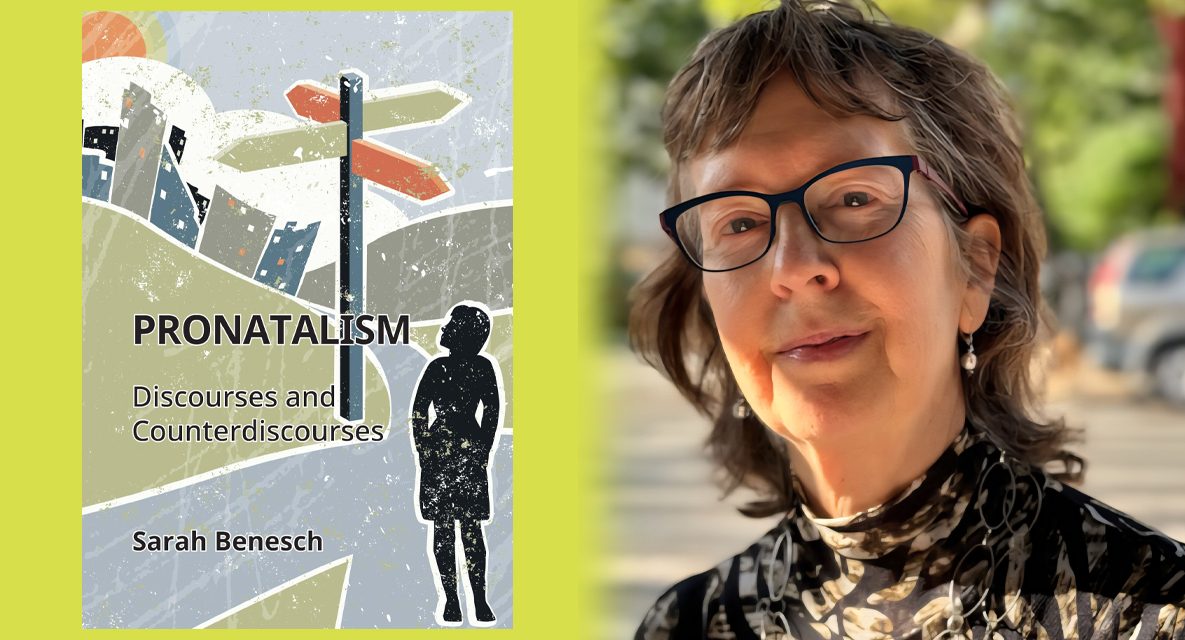College of Staten Island Professor Emerita of English Sarah Benesch has released Pronatalism: Discourses and Counterdiscourses, a bold and timely new work. Published by Multilingual Matters, the book explores an underexamined subject: women who voluntarily choose not to have children.
Drawing from her background, as an applied linguist, in critical discourse analysis, Benesch investigates the ways in which language is used to enforce motherhood as women’s only viable life choice. She carries out this analysis by examining discourses such as “maternal instinct,” “biological clock,” and “having it all,” alongside 20th-century eugenics discourses and policies in the United States, the UK, and France.
In addition, Pronatalism delves into contemporary online communities devoted to “childfreedom,” the perspectives of 20th and 21st century women authors who wrote about their decision not to procreate, and responses from academic women in applied linguistics to questions about their own childlessness.
Benesch began the project in 2022, a few years after retiring from CSI, motivated by a desire to raise the profile of women who choose not to have children. “One of my goals,” she explains, “is to highlight the decision many women make not to have children as a legitimate choice rather than a lamentable or selfish one. Some choose to devote themselves to work, community, the arts, activism, and so on. Their lives are generous and satisfying without children.”
The book arrives at a particularly relevant time. During the 2024 presidential election season, pronatalism became a political talking point, with some public figures disparaging women without children. This, Benesch says, only underscores the urgency of the conversation. “In reaction to such pronouncements, a flurry of news articles on pronatalism has appeared. This attention was something I hadn’t anticipated—it makes the book more timely than it might otherwise have been.”
The three-year research and writing process brought Benesch new insights, particularly into the history of eugenics in the United States. “I learned about the extent of its adoption in the 20th century, in part as a reaction to the arrival of immigrants from southern and eastern Europe,” she says. “Policies were implemented to encourage large white families while limiting reproduction among marginalized groups.”
Pronatalism is already receiving praise from leading scholars. Sue Starfield of UNSW Sydney calls it “a path-breaking book” that challenges deep-seated assumptions about women’s reproductive destinies. Gary Barkhuizen of the University of Auckland describes it as “hugely powerful and captivating,” while Sunny Man Chu Lau of Bishop’s University calls it “a groundbreaking exploration” with impeccable timing.
Benesch is promoting the just-published book on social media and preparing for fall readings. In its pages, she calls for solidarity between mothers and what she terms “nothers”—women without children—arguing that unity is essential to advancing reproductive rights, prenatal care, subsidized childcare, early childhood education, and bodily autonomy for all women.
Pronatalism: Discourses and Counterdiscourses is available in hardcover and as an ebook through Multilingual Matters, and wherever books are sold.
















